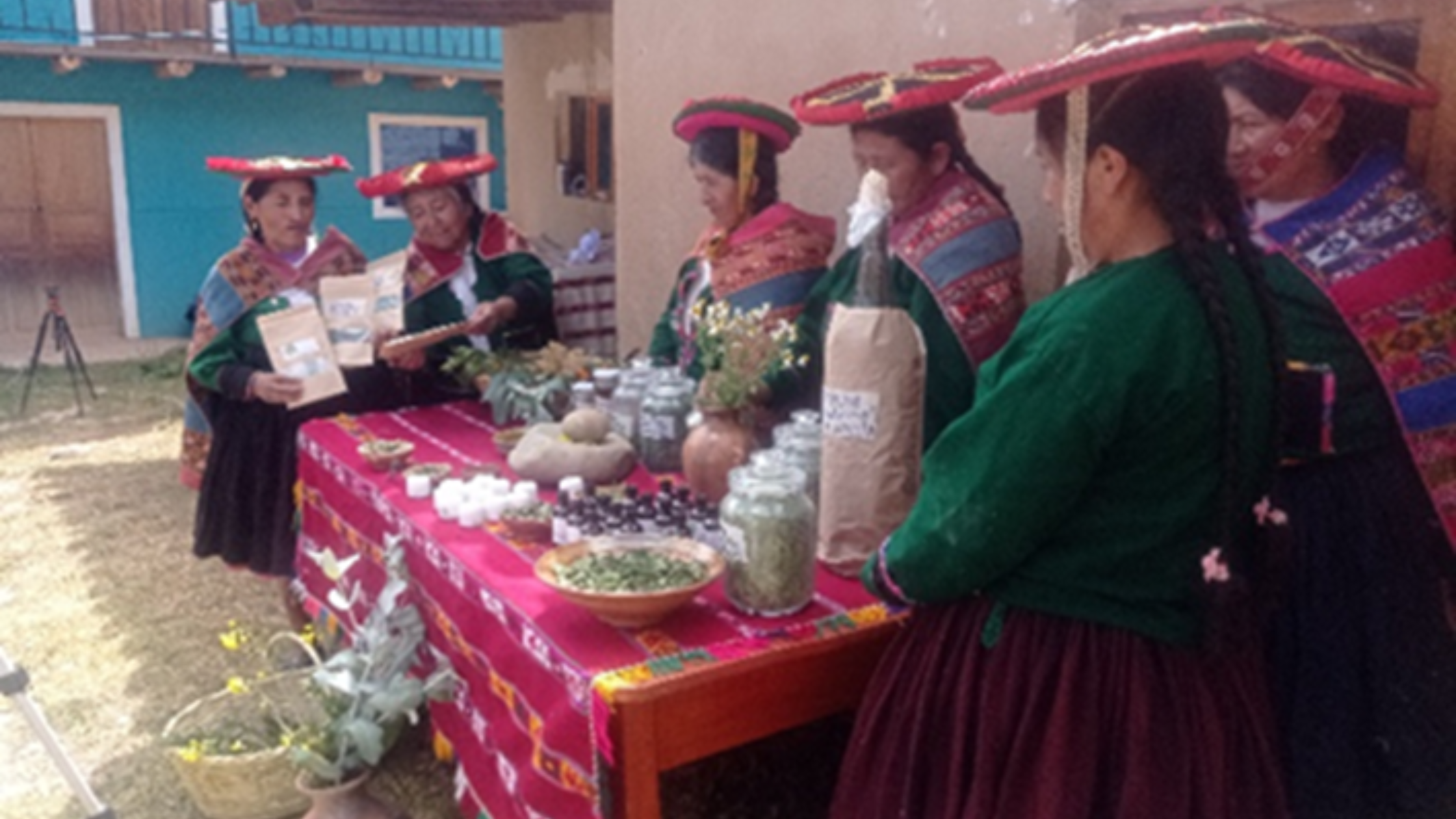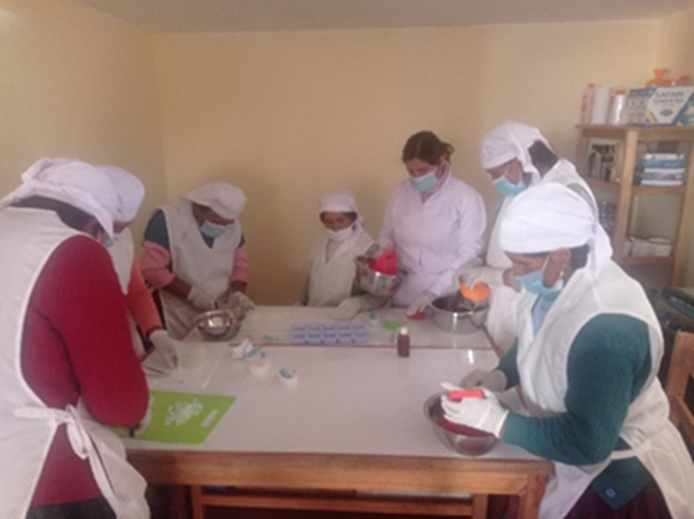Women in Peru strengthen their knowledge in traditional Andean medicine and increase their family income
Story

The Quechua women of the Chari community are recovering their knowledge of Andean medicine and traditions, while also revaluing this knowledge towards community tourism.
In recent years, the community has seen a decrease of tourists due to social conflicts, the COVID-19 pandemic, and other external factors.
Cuso International and local partner Centro Bartolome de las Casas are helping women in the Andean community secure a better quality of life for themselves and their families by producing medicinal products that will bring income to their homes, while also strengthening the leadership and empowerment of the Quechua rural women.
These women have low levels of formal education, most of them are illiterate, which limits their employment opportunities.
Through the project “Rural Women Revaluing and Recovering Ancestral Knowledge in Traditional Andean Medicine for Community Tourism” these women are diversifying their products by using native plants in the area. Installing medicinal plants, including hierba buena, c’hiri ch’iri, cedroncillo, marigold, chamomile, and mint in orchards and live fences, the women are able to make products such as ointments for burns and muscle pain, syrups, soaps, and patches.
“We have many healing plants that we know and others that we don’t. We want to use them to cure ourselves, our families, and for the tourists that visit us in the community,” said participant Eustaquia Quispe Pucho. “When we get sick, we buy pills and tablets, and we want to know the properties of the plants and how to use them to cure ourselves. That is why we have asked the project for a professional who knows the subject and can help us work and advise us well.”
 Eustaquia is one of nine women and their families, including one woman who is visually impaired, taking part in the program. Ten workshops taught the women about the development of medicinal products, costs, sanitary and trademark registration, and production for participation in fairs.
Eustaquia is one of nine women and their families, including one woman who is visually impaired, taking part in the program. Ten workshops taught the women about the development of medicinal products, costs, sanitary and trademark registration, and production for participation in fairs.
The women are selling their products in local markets and fairs, as well as markets in Cusco. Helping to preserve the environment, products have glass packaging, and the labeling, logo, and wrapping is done with environmentally friendly materials.
Not only are these nine women and their families recovering this medicinal knowledge and traditions, but they are also committed to sharing that knowledge with other women in the community, already reaching 460 people.
“The ancestral knowledge of medicinal plants will not end, we will teach our children,” said Eustaquia. “Everything we have learned we will transmit to our children and others interested in the subject. There are many plants that we also do not know their properties, but with the teacher we will work all this out.”
The project is part of Cuso International’s Sharing Canadian Expertise for Inclusive Development and Gender Equality (SHARE) program. Initiated in 2020 and funded by Global Affairs Canada, the project helps improve the economic and/or social well-being of underserved people.
Help more women increase the quality of life for themselves and their families. Donate today.